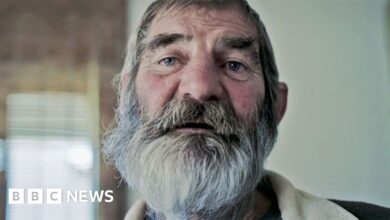The ceasefire plan brings high benefits to Israel and Hamas

For the leaders of both Hamas and Israel, ending the war in Gaza has become a deadly game of survival.
The conditions under which the war will ultimately end may largely determine their political future and their ability to hold power. For Hamas leader Yahya Sinwar, even his physical survival.
That’s partly why previous negotiations failed. That is also why the question of how to permanently end the fighting has been delayed to the final stages of the plan outlined by US President Joe Biden on Friday.
Mr. Biden admitted that transitioning from negotiations on a limited hostage exchange agreement to discussing a permanent ceasefire will be “difficult.”
But that is also where the success or failure of this latest agreement will be determined.
Israeli Prime Minister Benjamin Netanyahu has good domestic reasons for wanting to take this deal one step at a time.
Phase one, as outlined by Mr. Biden, would see the release of dozens of hostages, both alive and dead. That will be widely welcomed in a country where the failure to release all those detained by Hamas is, for many, a clear moral blemish on his management of the war.
But Hamas is unlikely to give up its most politically sensitive hostages – women, the wounded, the elderly – without some assurance that Israel will not simply restart the war when they return. come home.
The leaks, cited by Israeli media on Monday morning, claim that Benjamin Netanyahu told parliamentary colleagues that Israel would likely keep its options open.
Some believe that the option to continue fighting – until Hamas is “eliminated” – is the least option that Netanyahu’s far-right coalition partners will demand.
Without their support, he faces the prospect of early elections and continued corruption trials.
Netanyahu needs to keep his long-term options open to have a chance of winning their support for any initial hostage agreement. On the other hand, Hamas leaders may want guarantees of a permanent ceasefire from the start.
Previous transactions have collapsed into this abyss. Connecting it now will depend on how much room Netanyahu has to maneuver with his far-right government allies to find alternatives to “eliminating” Hamas – and its leaders. How far the Hamas leadership is willing to consider them.
Netanyahu talked over the weekend about destroying Hamas’s “military and administrative capabilities” and ensuring that the group no longer poses a threat to Israel.
Few would dispute that Hamas has suffered major losses in its military infrastructure – and even, some say, in its public support in Gaza and its control of the streets.
But there is no indication that Israel killed or captured its top leaders Yahya Sinwar and Mohammed Deif, and that leaving them free in Gaza to celebrate the withdrawal of Israeli forces would have been disastrous. political disaster for Israel’s beleaguered prime minister.
Yanir Cozin, diplomatic correspondent for Israeli military radio GLZ, believes Netanyahu will not end the war until he can consider it a success.
“A deal to leave Hamas is a huge failure,” he said. “Eight months in, when you don’t achieve any of the war goals – don’t destroy Hamas, bring back all the hostages or secure the border – he doesn’t want to end the war. But he also understands that he cannot leave it until the next Israeli election in 2026.”
“If he can say, ‘We exiled Yahya Sinwar and Mohammed Deif, they don’t live in Gaza’ – and if people who live near Gaza and the northern border can come back – I think he can keep his government united. But there are a lot of ‘ifs’.”
Hamas is unlikely to agree to the exile or surrender of its top figures. However, there are clear divisions between Hamas leaders inside and outside Gaza.
Former Israeli Prime Minister Ehud Barak, who also served as defense minister, told Israeli radio on Monday that President Biden announced the deal “after seeing that Netanyahu only went ahead when he was sure that Sinwar would refuse.”
“How do you think Sinwar will react when he is inclined to agree and then he is told: but hurry up, because we still have to kill you after you return all the hostages,” he said. speak.
Meanwhile, tens of thousands of Israelis displaced by a Hamas attack on October 7 are watching their prime minister’s next move.
Among them was Yarin Sultan, a 31-year-old mother of three, who fled her home in Sderot, on the Gaza border, the morning after the Hamas attack. She said she would not go home until Yahya Sinwar and Mohammed Deif were no longer free.
“This ceasefire will kill us,” she told the BBC. “We will free the hostages, but in a few years you will be the next hostages, you will be the next people murdered, the next women raped – all of this will happen again.”
Additional reporting by Rushdi Aboualouf




